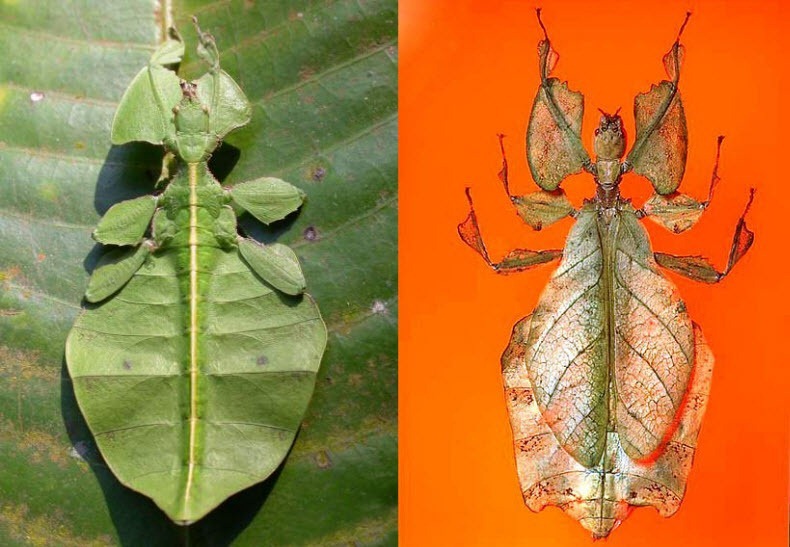The creature may have been first documented by the scholar Antonio Pigafetta, who sailed with the Portuguese explorer Ferdinand Magellan and his crew on their voyage to the Indies in the 15th century. He studied and chronicled the fauna on the island of Cimbonbon as the fleet hauled ashore for repairs. During this time he documented the Phyllium species with the following passage:
In this island are also found certain trees, the leaves of which, when they fall, are animated, and walk. They are like the leaves of the mulberry tree, but not so long; they have the leaf stalk short and pointed, and near the leaf stalk they have on each side two feet. If they are touched they escape, but if crushed they do not give out blood. I kept one for nine days in a box. When I opened it the leaf went round the box. I believe they live upon air
Leaf insects occur from South Asia through Southeast Asia to Australia. At present, there is no consensus as to the preferred classification of this group, but they are generally treated as the Family Phylliidae.








Source
